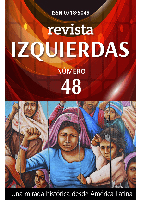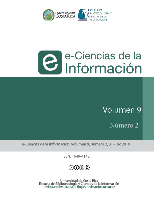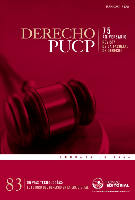
Tapuya-Latin American Science Technology and Society
Scope & Guideline
Advancing Interdisciplinary Dialogues for a Dynamic Future
Introduction
Aims and Scopes
- Interdisciplinary Research on Science and Technology:
The journal emphasizes the importance of interdisciplinary approaches in understanding the role of science and technology within social and cultural contexts, particularly in Latin America. - Critical Examination of Epistemologies:
It promotes critical analysis of various forms of knowledge production, including indigenous and local knowledge systems, and how they intersect with global scientific practices. - Engagement with Socio-Environmental Issues:
The journal addresses pressing socio-environmental challenges in Latin America, focusing on extractivism, environmental justice, and the socio-political implications of technological advancements. - Public Understanding of Science:
It investigates how science is perceived and understood by the public, and the impact of this understanding on policy and societal change. - Citizen Science and Community Engagement:
The journal showcases research that involves community participation in scientific inquiry, emphasizing the role of citizen science in addressing local and global issues.
Trending and Emerging
- Political Epistemology and Science:
There is a growing focus on how political contexts influence scientific discourse and practices, particularly amidst rising populist movements in Latin America. - Extractivism and Environmental Justice:
Research on the implications of extractivism—particularly in relation to environmental degradation and social justice—is increasingly prevalent, reflecting urgent socio-environmental concerns. - Indigenous Knowledge Systems:
An emerging theme is the integration of indigenous knowledge systems into scientific discourse, challenging dominant epistemologies and advocating for pluriversal perspectives. - Digital Technologies and Society:
The impact of digital technologies on social structures and interactions is a rising focus, particularly concerning issues of equity, access, and community resilience. - Health and Society Intersectionality:
There is an increasing emphasis on understanding health issues through the lens of social determinants, gender, and community engagement, particularly in the context of the COVID-19 pandemic.
Declining or Waning
- Traditional Scientific Disciplines:
There seems to be a decline in papers focused on conventional scientific disciplines without interdisciplinary or socio-political context, as the journal increasingly favors interdisciplinary and critical analyses. - Historical Studies of Science:
Papers solely focused on historical accounts of scientific development in Latin America are becoming less prominent, as there is a shift towards contemporary issues and their socio-political implications. - Technological Optimism:
The optimistic narratives surrounding technology as a purely beneficial force are waning, with more critical perspectives on the societal impacts of technology gaining traction. - Single-Disciplinary Approaches:
Research that does not incorporate perspectives from multiple disciplines is appearing less frequently, indicating a trend towards more integrated studies.
Similar Journals

Izquierdas
Fostering Innovative Research in Political DynamicsIzquierdas is a distinguished open access journal published by ARIADNA EDICIONES in partnership with Saint Petersburg State University, focusing on the dynamic fields of History, Political Science, and Sociology. Established in Chile and operating since 2008 as an open access platform, the journal fosters academic discourse and research dissemination for scholars and practitioners alike. With a commendable Q2 ranking in History and Q3 status in both Political Science and Sociology as of 2023, Izquierdas occupies a significant position within its categories, being recognized for its contributions to advancing understanding of leftist political thought and social dynamics. Its Scopus rankings further underscore its valuable contribution to the arts and humanities and social sciences, making it an essential resource for anyone engaged in contemporary social and political issues. The journal continues to evolve and adapt, set to converge from 2013 to 2024, ensuring it remains at the forefront of scholarly communication in its field. For researchers, professionals, and students passionate about these critical domains, Izquierdas represents a vital repository of innovative ideas and peer-reviewed research.

NanoEthics
Advancing Ethical Dialogues in NanoscienceNanoEthics is a pioneering journal published by Springer, dedicated to exploring the complex intersections of nanotechnology and ethical considerations. With an ISSN of 1871-4757 and an E-ISSN of 1871-4765, this influential journal has steadily progressed since its inception in 2007, sustaining high academic standards and relevance through 2024. It is notably positioned in the Q1 category for History and Philosophy of Science and Philosophy, reflecting its significant impact in these disciplines, and holds commendable rankings in several other categories, including Social Sciences and Management of Technology and Innovation. With its commitment to fostering rigorous dialogues and interdisciplinary research, NanoEthics serves as an essential platform for researchers, professionals, and students engaged in understanding the socio-ethical dimensions of nanoscience. The journal's comprehensive scope invites contributions that challenge conventional paradigms, encouraging innovative thought leadership in the realms of technology and ethics.

E-Ciencias de la Informacion
Leading the Way in Accessible Information ResearchE-Ciencias de la Informacion, an esteemed journal published by the University of Costa Rica, serves as a pivotal platform for the dissemination of knowledge in the fields of information science and technology. With its Open Access policy adopted in 2011, the journal ensures that research findings are readily available to a global audience, fostering collaboration and innovation among researchers, professionals, and students alike. This accessible publication supports the advancement of theoretical and applied knowledge while encouraging rigorous academic dialogue in the rapidly evolving landscape of information sciences. Although we currently lack specific impact metrics like the HIndex, the journal's commitment to quality and integrity positions it as a crucial contributor to ongoing discussions and developments in the discipline. Located at the Centro Investigaciones & Matemática Pura & Aplicada in San Jose, Costa Rica, this journal not only showcases groundbreaking research but also aligns with the University’s mission to enhance scientific inquiry and education in Latin America and beyond.

Derecho PUCP
Advancing legal knowledge for a just society.Derecho PUCP is a distinguished open access journal published by the Pontificia Universidad Católica del Perú, specifically from the Faculty of Law. With a commitment to advancing legal scholarship, this journal has been an essential resource in the field of law since 2005, providing researchers, practitioners, and students with access to critical analyses and discussions on various legal topics. Based in Lima, Peru, Derecho PUCP holds a prestigious position with a Q2 ranking in the Law category, reflecting its impactful contributions to the social sciences, particularly in the legal domain. The journal publishes cutting-edge research and promotes innovative discourse, aiming to foster academic excellence and engage with contemporary legal challenges. As it continues to converge into its future issues from 2019 to 2024, Derecho PUCP exemplifies a vital platform for those committed to the pursuit of legal knowledge and research.

Metode Science Studies Journal
Pioneering New Perspectives in Science StudiesMetode Science Studies Journal, published by UNIV VALENCIA, BOTANICAL GARDEN UV, is an esteemed open-access journal dedicated to advancing scholarly discourse in the fields of history and philosophy of science and multidisciplinary studies. Since its inception in 2013, the journal has positioned itself as a vital resource for researchers, professionals, and students, fostering an environment for innovative research and cross-disciplinary dialogue. Based in the vibrant city of Valencia, Spain, this journal aims to publish high-quality articles that explore the intricate relationships between scientific practices and philosophical inquiries. With a current impact factor demonstrating its relevance in the academic community, the journal is indexed in Scopus, ranking in the 52nd percentile for history and philosophy of science and the 33rd percentile for multidisciplinary studies. Scholars can access a breadth of research outputs that span from 2015 to 2024, thereby contributing significantly to the intellectual landscape of the respective fields.

Revista de Investigaciones Politicas y Sociologicas
Unveiling Contemporary Socio-Political IssuesRevista de Investigaciones Politicas y Sociologicas, published by the prestigious Universidad de Santiago de Compostela, stands as a significant academic platform in the fields of political science and sociology. Aimed at fostering scholarly dialogue, this journal publishes innovative research that contributes to the understanding of complex social dynamics and governance structures. Although not currently indexed in Scopus, the journal serves as a vital resource for researchers, professionals, and students interested in contemporary socio-political issues. Located at the heart of Santiago de Compostela, Spain, it encourages contributions that explore theoretical frameworks and empirical studies, making it an essential reading for those seeking to deepen their knowledge in these interrelated disciplines. As an open-access journal, it provides unrestricted access to valuable insights and findings, facilitating broader dissemination and engagement within the academic community.

Dixit
Empowering Research Through CollaborationDixit is a respected academic journal published by Universidad Católica del Uruguay, Facultad de Ciencias Humanas, primarily focusing on the fields of humanities and social sciences. With an ISSN of 1688-3497 and an E-ISSN of 0797-3691, this journal has been a fully Open Access publication since 2007, enabling free and unrestricted access to its high-quality research. It serves as a vital platform for scholars, researchers, and students to explore innovative ideas and disseminate valuable findings that contribute to the understanding of human experiences across various contexts. The journal's commitment to open access not only promotes knowledge sharing but also facilitates cross-disciplinary dialogue, making it an essential resource for anyone seeking to deepen their insights into the humanities. By fostering collaboration and engaging the academic community, Dixit plays a pivotal role in advancing scholarly discourse in Latin America and beyond.

Sociologia Nauki i Tehnologij-Sociology of Science & Technology
Advancing Interdisciplinary Insights into Science and SocietySociologia Nauki i Tehnologij-Sociology of Science & Technology is a distinguished journal dedicated to exploring the intricate relationships between science, technology, and society. Published by the Institute of History of Science and Technology, Saint Petersburg Branch, Russian Academy of Sciences, this journal serves as a vital platform for interdisciplinary research and discourse within the fields of sociology, science studies, and technology assessment. The journal encourages contributions that delve into the societal implications of scientific advancements and technological innovations, making it essential reading for researchers, professionals, and students alike. Although specific impact factors and access options are currently not provided, the journal is committed to maintaining high academic standards and fostering a rich scholarly community. Join us in advancing the understanding of how science and technology shape human experiences across diverse contexts.

Revista Historia-Debates e Tendencias
Bridging Disciplines for a Deeper Understanding of HistoryRevista Historia-Debates e Tendencias is a prestigious academic journal dedicated to the study of historical themes, discourses, and trends in the field of history and social sciences. Published by UNIV PASSO FUNDO, this journal has been a vital resource for scholars and practitioners in Brazil and beyond since it transitioned to an Open Access model in 2007, ensuring that research is freely accessible to all. With its ISSN 1517-2856 and E-ISSN 2238-8885, the journal aims to foster critical discussions and inter-disciplinary dialogues on historical narratives, methodologies, and perspectives. By providing a platform for both emerging and established researchers, it plays an essential role in advancing the field of history while contributing to the global academic community. As a publication that encourages innovative research and scholarly debate, Revista Historia-Debates e Tendencias serves as an indispensable tool for anyone engaged in historical inquiry and analysis.

Revista de Estudios Politicos
Illuminating Political Science and SociologyRevista de Estudios Politicos is a distinguished academic journal published by the CENTRO ESTUDIOS POLITICOS CONSTITUCIONALES in Spain. With its ISSN 0048-7694 and E-ISSN 1989-0613, the journal has made significant contributions to the fields of Political Science, Sociology, and International Relations. Operating within a robust framework since its establishment, it has been assessed to be in the Q3 category for both Political Science and Sociology as of 2023, showcasing its relevance and impact in these domains. The journal features a diverse array of scholarly articles, ensuring a rich dialogue among researchers, practitioners, and students alike. While currently not offering open access, it is committed to upholding high academic standards, exemplified by its Scopus ranking, which places it in the 42nd percentile for Sociology and Political Science disciplines. The Revista de Estudios Politicos provides a critical platform for innovative research, insights, and discussions that shape the understanding of contemporary political dynamics and social issues in Spain and beyond.